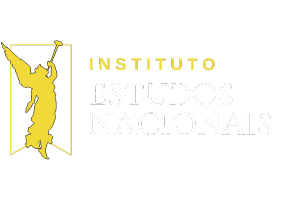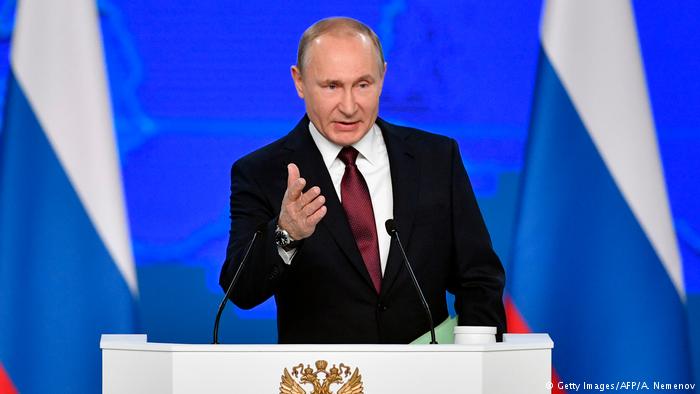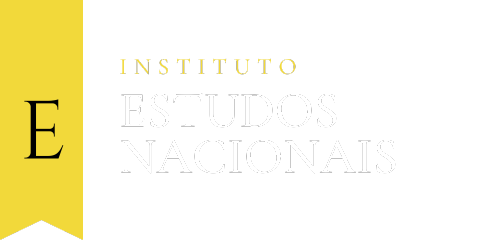Daniel Ferraz
Recently, an article was published on the Nova Resistência (NR) website, which is a voice for Alexander Dugin and Putin in Brazil and Latin America. The article, previously discussed here, attempts to reconcile Duginism with Christianity.
NR is a group that has gained significant relevance in recent years, and we have been commenting on it for some time in relation to Eurasianism. On other occasions, I have mentioned how NR has structured Think Tanks, especially in universities, including at the University of São Paulo (USP), where Dugin himself had ample space to lecture and spread his ideas, especially his Fourth Political Theory thesis, which is the ideological flagship of the Russian ideologue. As expected, these people also began to gain much importance, a certain significance after the discussions about the globalist revolution or the woke agenda, which is naturally the rhetoric, the basis for Alexander Dugin, that the current West is the result of a liberal revolution, of a progressive revolution, of a, let’s say, “exoteric” revolution, in the sense given by the Muslim Sufi René Guénon, one of Dugin’s inspirers.
For Dugin, the contemporary West is nothing more than a blend of liberalism, scientism, individualism, and all these liberal currents that have led it away from the Primordial Tradition or traditionalist archaism, as Dugin defends in his book “The Fourth Political Theory”. Therefore, this movement began to gain many followers, including Orthodox, Muslims, and Catholics. I’m addressing Catholics here especially.
This ideology proposes an archaic blend where the Russian Empire would have all the answers to Western degradation. Thus, Dugin characterizes the West as the great enemy, atlantism, that is, maritime peoples against land peoples. He proposes the war of continents against the West in a true “syncretism” to destroy Western civilization. For him, Western countries are the force that prevents the rise of a great traditionalist empire, a gnostic empire, a term he himself ends up using in several of his texts. His followers are Gnostics and would have the answer to the world’s problem, which is naturally the West. In other words: they want to subjugate it, destroy it, modify it under the aegis of the Great Eurasian Empire, of great multipolarity which, in truth, would be commanded by the enlightened, by the Russian bulwarks.
In his ideology, Dugin uses everything that is or appears to be anti-Western, in a hodgepodge that represents nothing more than what he himself will call the “left-hand path”, which is the revolutionary path used against the West. For all this, Duginists use some Catholic propositions, using rhetoric to gain more followers for their cause. They are doing this in a very seductive way, which has indeed managed to recruit unsuspecting people, recruit militants for their cause. This is because Revolution, as I always like to say, is very seductive, it comes with messianic proposals, beautified, varnished through language. They are beautiful and come with a very high moralizing charge. For them, the West represents immorality, post-modern liberal Revolution, the degradation of the family, the degradation of the human person, of society, of institutions, in short, everything. So, they say, we would need a revolution, but above all, of a moral nature. We would need, they conclude, a kind of global dictatorship that had this moralizing appeal so that the globalists are destroyed once and for all and we can finally live in tradition. This appeal is very strong and comes from those who present themselves as those who are truly seeing the problem of degradation.
After so many revolutions, they conclude that the Church is no longer the Church, that civilization is no longer civilization and that we are no longer the same. Therefore, we could not, in any way, rescue any sense of morality, objectivity, a metaphysical sense, since we live in pure liberal materialism and that, being so, everything is lost. Except the great Russian empire, which promises to be a messianic empire. For this, Duginists of the Fourth Political Theory need to recruit unsuspecting individuals who are, at least, as close as possible to what they believe to be Western tradition par excellence, that is, Catholicism.
René Guénon said that Catholicism was no longer sufficient to safeguard the West and that the Church should be subjected to Eastern sages, especially to Islamic Sufism, the Islamic esoterics. This was one of Guénon’s main theses. There are others, however, that Dugin also uses from Guénon, but he differs from the French Sufi regarding the means of action to execute the objective expressed in his theses.
For example, Dugin will not agree with Guénon regarding the so-called “right-hand path”, Guénon’s option, considered a “soft path”, a light path, the path of initiation. Guénon was completely critical of the religious path [exoteric, public]. He suggested the path of initiation through a secret society, an esoteric group, as the main method to acquire “higher knowledge”. In other words, for Guénon, gnosis was necessary for the enlightenment that would remove the individual from alienation. Against this, Guénon suggests a messianic path of destruction of what he called, in the book “The Crisis of the Modern World”, Kali Yuga, an era of darkness in which we live, according to him, for 6,000 years. We can only imagine the level of presumption of these intellectuals.
We would be more than 6,000 years, that is, the entire history of civilization, obviously passing through the Incarnation of the Word, the Revelation, the Church. Even so, for Guénon, all this was nothing but pure exotericism, an inferior and alienating path or even pure and simple anti-tradition.
For Guénon, everything that happened after the most primitive, most archaic civilizations of humanity, and which according to him had direct contact with a Primordial Tradition, traditional in full excellence, the “golden age” etc., – beyond this is exoteric anti-tradition. This means that if our time is more than 6,000 years, the time of all Western history, including the Holy Catholic Church, must somehow be surpassed so that humanity returns to an Adamic or post-Adamic state of the earliest primordial times. In short, this is what Guénon defends. If this is already worrying, Dugin will defend the same, only through another path, the revolutionary path, the path of destruction, of war between continents and between whole civilizations.
But for all this, they need Catholic propositions to recruit unsuspecting militants.
In his article, Nova Resistência seeks to establish a relationship between Christianity and the Fourth Political Theory, believing piously that it is possible, considering these assumptions that I present here. As I have explained, Dugin sees his Fourth Political Theory as the discovery of this higher knowledge beyond dogmas, superior to the tension between subject and object, and even superior to the tension between people. Because for him, as for every Gnostic, there is a core within us that goes beyond what is historically conditioned, that is, the existing space-time tension between subject and object. It’s as if we have, within our personal properties, a substance, a spark, that makes us superior to all these tensions and enables us to reach, within ourselves and our spirit, an identification with divinity itself.
Above all, Dugin believes that his Fourth Political Theory is precisely this higher knowledge. So much so that, as we will see, in his book he uses the term “holders of the fourth political theory”. He doesn’t say, “those who study the fourth political theory” or those who “understood the fourth political theory”, but the “holders of the fourth political theory”. The fourth political theory, for Dugin, is gnosis itself.
On the other hand, Catholicism, the Holy Catholic Doctrine, is an integral and unique deductive-logical edifice, which has its complete meaning in the proclaimed dogmas. After all, what are the dogmas? Dogmas are definitive conclusions in the light of what was revealed by God, by Our Lord Jesus Christ. They are integral logical-deductive propositions that protect, that really give rational meaning to the deeds, to the actions of Our Lord and His teachings. The dogmas are the doctrine left by Him. That is, the dogmas are not post facto creations, human creations. But when we have, for example, the Dogma of Transubstantiation, we understand why Christ, at the Last Supper, left us the Eucharist, in which He transforms the bread into His body and the wine into His blood. Therefore, through the dogma, we understand that at that moment we have the body, blood, soul, and divinity of Our Lord Jesus Christ present in the substances. He is the one who transforms the substances because He is God Himself. He is the Logos. He is the creator of matter. This He really did. Therefore, it is through the dogmas that we understand this. But when Dugin says that the “holders of the Fourth Political Theory” have permission to ignore the dogmatic elements, it’s as if he were putting the individual, the person, above even the divine transubstantiation. How can we ignore something like transubstantiation? Especially for a Catholic. This already seems very strange to us at the very least.
Formal ignorance, that is, formally turning one’s back on this Dogma, is formal heresy. We are denying a truth of faith. That is heresy. But Dugin is saying that the individual “holder of the Fourth Political Theory” is superior to “historically conditioned dogmas”, just as Guénon argued about the initiated individual. Therefore, observe the pretension of these individuals. However, they want to assert that there is an intimate relationship with Christianity. Why do they want to do this?
It is important to remember here the excellence of theologians, saints, and doctors of the Church, in skillfully using the potential discourses of logic. The Church has been very wise since the beginning of time, because the early fathers of the church, that is, the patristic fathers, after them the scholastics, the doctors, in the monasteries, etc., all educational institutions, were wise enough to take advantage of the best in pagan philosophy. Eastern philosophy, Greek philosophy, Roman philosophy, especially Law. They synthesized all of this into Catholic doctrine, which is what actually made the West. They were very wise in this, supported by these philosophies, which were indeed pagan. However, these philosophies represented the best of human knowledge up to that moment. The saints and doctors of Scholasticism knew how to make syntheses with Revelation, the doctrine left by Our Lord Jesus Christ, which was passed down through Apostolic succession, and especially from the Didache, for example, which was our first catechism. The Didache was very important for the early Christians because it was the teaching of the Apostles themselves. They used these elements in the beginning, mainly to defend the Church from its adversaries.
Against internal enemies, the heretics, theologians noticed that, if they did not have knowledge of those philosophies, the great debates and great councils of the early centuries, based on the Sacred Scriptures, that is, everything that forms the Holy Catholic Church, would not be possible. They fought against heretics and their apocryphal interpretations.
Dugin is one of the Gnostics who repeats many of the apocryphal writings of the early centuries, because, for the Gnostics, the apocryphal texts are the teachings that the Church of Rome, as they like to call it, would have hidden from humanity. So they reverse the process. For them, the Church hid the apocryphal texts from humanity, an argument we see, for example, in the Da Vinci Code. What is the Da Vinci Code? It is nothing more than this, that is, a rescue of apocryphal interpretations accusing the Church of hiding the truth from humanity or the “great secrets of the Vatican” that they adore.
What are the great Secrets of the Vatican? Well, they are the apocryphal books that the Church would have neglected to humanity, but why? Because there were Gnostic teachings there. But what Gnostic teaching? That Judas Iscariot had a gospel. That the truth is that Jesus induced Judas Iscariot to betray Him so that He could show people that the world is evil (Manichaean Gnostic belief). Or that, in fact, the true prophet was not Our Lord Jesus Christ, the true prophet would have been John the Baptist, responsible for presenting the good news, which is the announcement of gnosis.
For these heretics, John the Baptist would have been an enlightened Gnostic. These are the interpretations that they accuse the Church of hiding from humanity. Including the Johannine enlightenment, this Gnostic thesis that the true prophet was St. John the Baptist, has a lot to do with this messianism and historicism of modern ideologies. Because for them, human consummation does not occur in the Celestial Jerusalem. They believe in that historicism, that everything will culminate in the Kabbalistic theses of Joachim of Fiore, that the due end of history is immanent, from the “age of love”, the last empire, the last human bulwark that will bring back to man the Adamite state here and now.
However, after our Lord Jesus Christ, and through the Sacred Scriptures, especially the Book of Revelation of St. John, we know that the due end of man is transcendent and that there is no immanent end. After the Incarnation of the Word, all this ended. These interpretations no longer make sense, especially for a Catholic. This all means that a Catholic’s participation in a secular ideological struggle is actually the perfect path to the damnation of his soul. But they take Catholic propositions, make absurd analogies. Why?
They cut parts of the doctrine, and this is exactly the work of every ideologue. What is an ideologue? It is someone who hypertrophies rhetorical discourse. He is a sophist. He cuts a part of Catholic doctrine that interests him, systematizes it with his absurd propositions and argues that his propositions, his ideology, are not formally against Catholic doctrine. And, above all, he even pretends to reformulate Catholic doctrine and correct it. Now, if Catholic doctrine is incomplete, if it is wrong, then it means that Our Lord Jesus Christ lied to us. If Our Lord Jesus Christ lied to us, then God Himself lies. If God Himself lies, there is confusion in the being of God. However, if there is confusion in the being of God, what remains for us to deduce is that the Creator God is evil. He deceives us. This is the very demiurgic proposition. It’s what all heresies do.
Liberation theology does the same thing. Liberal theology does it, Modernist theology does it, Manichean theology did it. And Dugin’s metaphysics does it. It tries to correct Catholic doctrine. But they always act, as it could not be otherwise, dialectically. That is, while they aim to correct the doctrine, this pretension to correct the doctrine, they deny the doctrine. Because their main enemy is the Holy Church. So they act on these fronts. The infiltration front and the destruction front. An infiltration that seeks to modify Catholic doctrine from within and, at the same time, to destroy it. So they act dialectically in these two directions.
Given these presuppositions, we can comment more directly on Mr. Marden Samuel’s article available on the Nova Resistência portal, an active voice – as mentioned – of Alexandr Dugin and his nefarious ideology in Latin America.
The author divides the article into three topics: anti-nationalism, anti-capitalism and “Christian communism” and anti-individualism. In the first, Marden argues that Christianity breaks the barrier of racial logic of Judaism, acquiring a universalizing perspective in Christ’s own words: “Therefore, go and make disciples of all nations, baptizing them in the name of the Father, and of the Son, and of the Holy Spirit”. In the second, he argues that Christianity is a very strong opposition to an idea of wealth and strongly adheres to an anti-elitist idea, showing that the Gospel goes against the modern capitalist vision and the liberal-conservative right. And, in the third, Christianity breaks with the idea of “individual” and/or “individualism”, because, in the Church, there was only the idea of ecclesiastical community, brotherhood, community, corporation, based on the notion of the Real Presence in the Eucharist. Therefore, Dugin, in structuring the QTP, relies on his Orthodox faith and is completely consistent with Christianity, according to the author. But is it?!
It doesn’t take a deep search to refute these absurd parallels between Dugin and Catholicism. In his text entitled “The Gnostic”, Dugin proposes the Path of the Left Hand, purely esoteric and revolutionary, to destroy the current historical Age – which he considers the Age of Darkness, following René Guenon’s analysis of historical cycles, completely foreign to Christianity – he also declares that “the Gnostics will remain firm in their life’s work…”. Just in this – and only in THIS – I could already conclude my commentary on this somewhat “dubious” article. However, I can go further!
In his own book, The Fourth Political Theory, Dugin categorically states that the followers of his theory (holders, to be more exact) are “free to ignore those theological and dogmatic elements, which were affected by rationalism in MONOTHEISTIC societies…”. He also defends a sociological foundation based on Martin Heidegger – in his Dasein – which states that each society is a society in itself. That is, it is traditional and legitimate only by existing and should not be altered by universal elements, essentially separating itself from the teachings of the Catholic Church with which the author of the article says there are intimate relations with the QTP. In addition, Dugin, affirming himself unequivocally as a Gnostic (influenced by René Guénon, Julius Evola, Titus Burckhardt, among others), follows the mysterious teaching of Gnosis by distinguishing Christ from the Divine. For Dugin, the closest relationship with Christ is historically conditioned, while with the Absolute it does not require any intermediary, because in each subject there is a divine spark that can be identified. Now, this clearly deviates from the Church’s teaching regarding the substantiality of the Eucharist. Besides, the “Catholic” Dugin formally departs from the doctrine of the two swords, subjecting the spiritual authority of the Church to the temporal leviathan in a modernizing blend in the form of an apocalyptic Empire.
My dear, I believe that only by these elements that I can quickly summarize, we see how Gnostic ideologies pervert the truth and subject their followers to the most systematic and ridiculous lies! Anyone who truly wants to live a Catholic life must perceive these lies that are told with an air of hope and encouragement in the face of a “post-modern” and “decayed” world. The serpent’s illusions have never been so cunning…
To give you an idea of how ANTI-CATHOLIC Dugin is, in his theory called Noomachia, Dugin STATES:
“I have come to the conclusion that there is something beyond these two Logoi, that there is a third. Beyond the Dionysian Logos, something else is hidden. In the shadow of Apollo there is Dionysus, but in the shadow of Dionysus there is another. I called it the Logos of Cybele. […] Cybele is the name of a very ancient Anatolian god, the Great Mother of the Hatti, a very special pre-Indo-European people who lived in ancient Anatolia before the Hittites, who later adopted this deity, integrating it into their religious pantheon. After them, the cult of Cybele was also developed by the Indo-European population of the Phrygians, whose main goddess was precisely the “Great Mother”. The cult of the Great Mother was based on the ritual castration of men. The priests of Cybele were castrated becoming eunuchs and this was part of the great vision of matriarchy, of the reign of the Great Mother, where the role of man is completely different from what we know. A completely different position from the Dionysian position, since the cult of Dionysus was the attractive center of the bacchants, of the women, but also of the men, and, in this case, it is man at the center of human existence.”
Would any Catholic say that in the Gnostic theory of the Eternal Feminine there is something true?
It is OBVIOUS that Dugin’s Eurasianism is the old action of the serpent to parody Catholicism using it as a spearhead to deceive unsuspecting and excited people who stake their lives and souls on a secular and immanent salvation.
Daniel Ferraz










